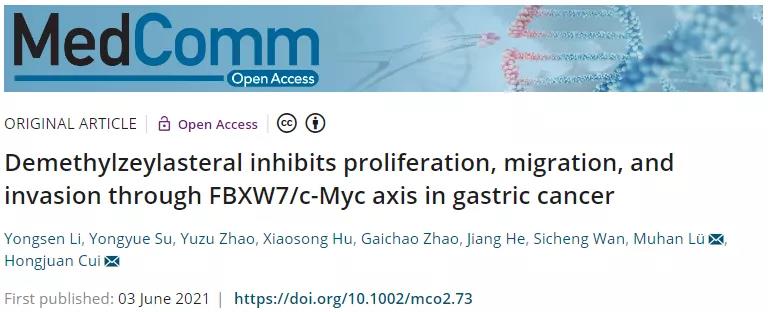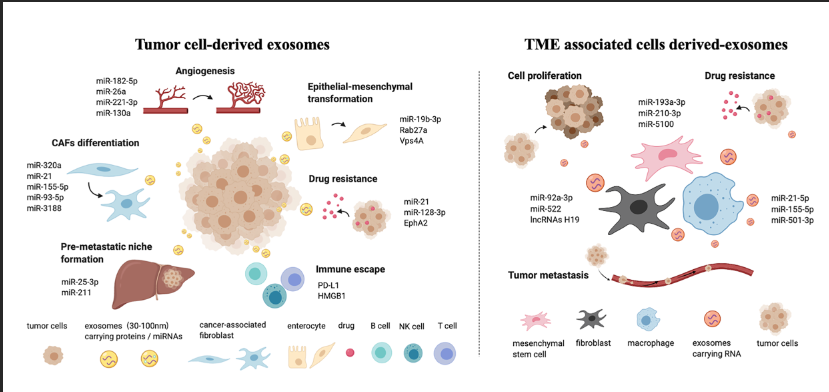MedComm | Demethylzeylasteral inhibits proliferation, migration, and invasion through FBXW7/c-Myc axis in gastric cancer

Open the phone and scan
Gastric cancer (GC) is one of the most familiar malignancy in the digestive system. Demethylzeylasteral (Dem), a natural functional monomer extracted from Tripterygium wilfordii Hook F, shows anti-tumor effects in a variety of cancers, including GC, however, with the underlying mechanism poorly understood. In our study, we show that Dem inhibits the proliferation, migration, and invasion of GC cells, which are mediated by down-regulating c-Myc protein levels. Mechanistically, Dem reduces the stability of c-Myc by up-regulating FBXW7, an E3 ubiquitin ligase. Moreover, in xenograft tumor model experiment, Dem also inhibits GC, which depends on suppressing c-Myc expression. Finally, Dem enhances GC cell chemosensitivity to the combination treatment of 5-Fluorouracil (5-Fu) and doxorubicin (DOX) in vitro. Together, Dem exerts anti-neoplastic activities through destabilizing and suppressing c-Myc, establishing a theory foundation for using it in future treatment of GC.

In this study, authors demonstrate that Dem induces GC cell apoptosis and also inhibits GC cell proliferation, migration, and invasion. We uncover that the downregulated c-Myc expression via activation of FBXW7 contributes to these phenomenon and that Dem enhances the chemosensitivity of GC cells to 5-Fu and DOX in vitro. Therefore, Dem may serve as a promising new anti-cancer drug for GC treatment alone or in combination with other chemotherapeutics.

Exosomes released by tumor cells and tumor microenvironment associated cells play a pivotal role in cancer initiation and progression
Article Access: https://onlinelibrary.wiley.com/doi/10.1002/mco2.73
Website for MedComm: https://onlinelibrary.wiley.com/journal/26882663
Looking forward to your contributions.


